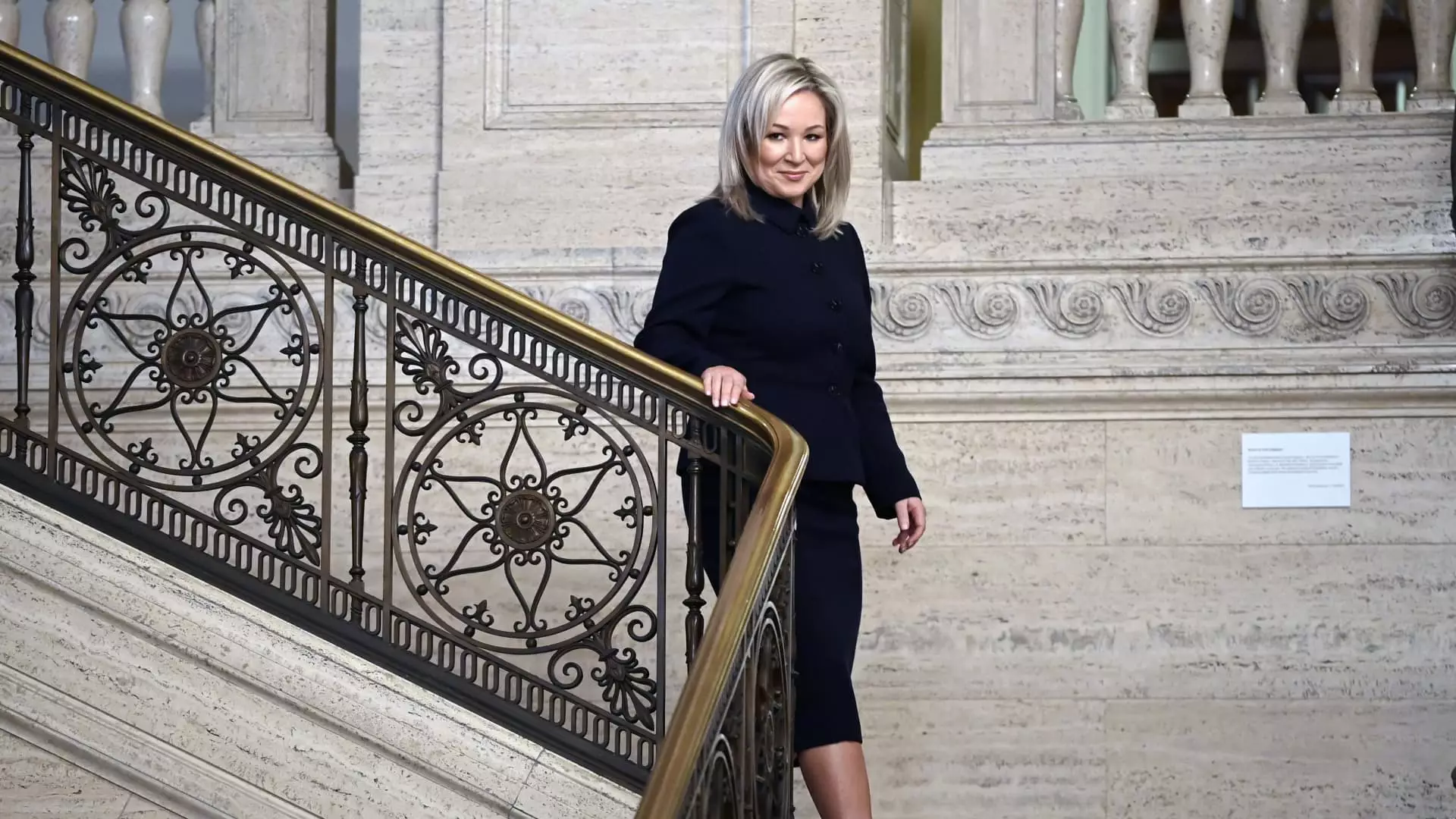Northern Ireland’s political landscape has undergone a significant shift with the appointment of Irish nationalist Michelle O’Neill as the First Minister, marking the first time an Irish nationalist has held this position. This historic milestone reflects the changing dynamics in a state established a century ago to ensure the dominance of pro-British unionists. O’Neill’s appointment is a delayed result of the watershed 2022 election, which has served as a testament to the rise of Sinn Fein, a party that envisions a united Ireland as “within touching distance.”
A New Generation of Sinn Fein Politicians
As the former political wing of the Irish Republican Army (IRA), Sinn Fein has historically been shunned by the political establishment on both sides of the border. However, the party’s recent electoral success has propelled it to become the most popular party in the Irish Republic as well. O’Neill is part of a new generation of Sinn Fein politicians who were not directly involved in the region’s decades-long bloody conflict between Irish nationalists and pro-British unionists. This generational shift signifies a departure from the past and a focus on a more inclusive and progressive approach to governance.
The End of Power-Sharing Boycott
Simultaneous to O’Neill’s appointment, the pro-British rival Democratic Unionist Party (DUP) has formally ended a two-year boycott of power-sharing government. This significant development follows the DUP’s agreement with the British government to ease post-Brexit trade frictions. The restoration of government has been hailed as a “great day for Northern Ireland” by Britain’s minister for the region, Chris Heaton-Harris. While it may be seen as a step towards stability and reconciliation, opposition to O’Neill’s appointment has been expressed by parties such as the Traditional Unionist Voice party, which vehemently rejects the DUP’s trade deal and the inclusion of Sinn Fein in the First Minister role.
Amid the celebration of this political milestone, all politicians in Northern Ireland face intense pressure to address the pressing issues that have been exacerbated by the two-year power-sharing hiatus. The disruption in governance has strained public services, placing a heavier burden on the government to deliver on bread-and-butter matters. While Sinn Fein has emphasized the prospect of unity, it is crucial for political leaders to focus on practical solutions that improve the lives of the people. A referendum on Irish unity remains at the discretion of the British government, and current opinion polls consistently show a clear majority in favor of remaining part of the United Kingdom.
The prolonged shutdown of power-sharing highlights the importance of reforming the current rules that have allowed the largest party on either side to repeatedly disable government for extended periods. Both the Irish and British governments have expressed openness to considering reform, recognizing the frustration among the public. The people of Northern Ireland have grown weary and are calling for change, seeking solutions to everyday issues like housing and the economy.
The appointment of Michelle O’Neill as the First Minister of Northern Ireland represents a new dawn for the region. This historic milestone reflects the rise of Irish nationalism and a departure from the turbulent past that has defined the political landscape. It is essential for political leaders to address the pressing socio-economic issues faced by Northern Ireland and work towards a more inclusive, stable, and prosperous future, regardless of constitutional aspirations. The focus should be on delivering tangible and positive change for all residents, fostering a society that values diversity and promotes harmony.


Leave a Reply